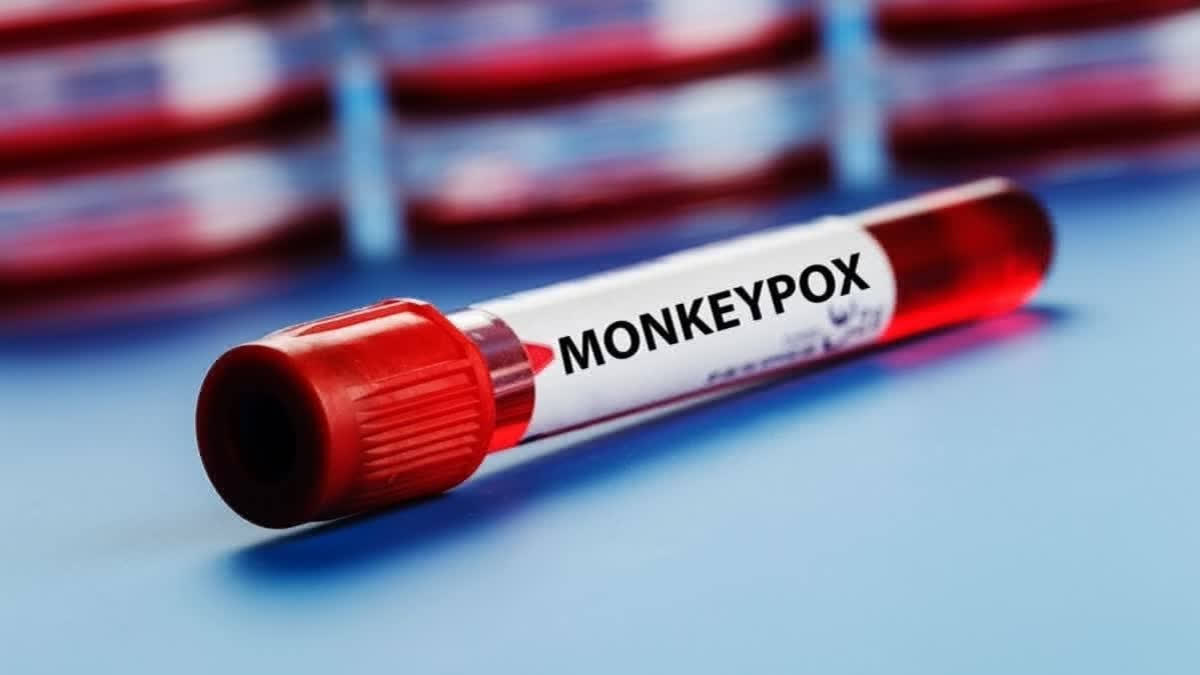New Delhi: The World Health Organisation (WHO) on Friday announced the MVA-BN vaccine as the first vaccine against Monkeypox (Mpox) to be added to its prequalification list. The prequalification approval is expected to facilitate timely and increased access to this vital product in communities with an urgent need to reduce transmission and help contain the outbreak. WHO’s assessment for prequalification is based on information submitted by the manufacturer, Bavarian Nordic A/S, and reviewed by the European Medicines Agency, the regulatory agency of record for this vaccine.
“This first prequalification of a vaccine against Mpox is an important step in our fight against the disease, both in the context of the current outbreaks in Africa and in future,” said WHO Director-General Dr Tedros Adhanom Ghebreyesus.
He said, “We now need urgent scale up in procurement, donations and rollout to ensure equitable access to vaccines where they are needed most, alongside other public health tools, to prevent infections, stop transmission and save lives.”
The vaccine can be administered in people over 18 years of age as a 2-dose injection given 4 weeks apart. After prior cold storage, the vaccine can be kept at 2–8°C for up to 8 weeks.
“The WHO prequalification of the MVA-BN vaccine will help accelerate ongoing procurement of the Mpox vaccines by governments and international agencies such as Gavi and Unicef to help communities on the frontlines of the ongoing emergency in Africa and beyond,” said Dr Yukiko Nakatani, WHO Assistant Director-General for Access to Medicines and Health Products.
He said that the decision can also help national regulatory authorities to fast-track approvals, ultimately increasing access to quality-assured Mpox vaccine products. The WHO Strategic Advisory Group of Experts (SAGE) on Immunization reviewed all available evidence and recommended the use of the MVA-BN vaccine in the context of a Mpox outbreak for persons at high risk of exposure.
While MVA-BN is currently not licensed for persons under 18 years of age, this vaccine may be used “off-label” in infants, children and adolescents, and pregnant and immunocompromised people. This means vaccine use is recommended in outbreak settings where the benefits of vaccination outweigh the potential risks.
WHO also recommends single-dose use in supply-constrained outbreak situations. WHO emphasises the need to collect further data on vaccine safety and effectiveness in these circumstances.
Available data shows that a single-dose MVA-BN vaccine given before exposure has an estimated 76% effectiveness in protecting people against Mpox, with the 2-dose schedule achieving an estimated 82% effectiveness. Vaccination after exposure is less effective than pre-exposure vaccination.
Meanwhile, in coordination with Member States, the World Health Organization (WHO) and its partners have established an access and allocation mechanism for Mpox medical countermeasures, including vaccines, treatments and diagnostic tests. The Access and Allocation Mechanism (AAM) will increase access to these tools for people at the highest risk and ensure that the limited supplies are used effectively and equitably.
This is part of the response to the public health emergency of international concern declared by WHO Director-General Dr Tedros Adhanom Ghebreyesus on August 14, following an upsurge of Mpox in the Democratic Republic of the Congo and neighbouring countries.
Fifteen countries in Africa have reported Mpox this year. Recommendations issued on the advice of the International Health Regulations Emergency Committee asked States Parties to ensure “equitable access to safe, effective and quality-assured countermeasures for Mpox.”
“Alongside other public health interventions, vaccines, therapeutics and diagnostics are powerful tools for bringing the Mpox outbreaks in Africa under control,” said WHO Director-General Dr Tedros Adhanom Ghebreyesus.
He said that the COVID-19 pandemic illustrated the need for international coordination to promote equitable access to these tools so they can be used most effectively where they are most needed. We urge countries with supplies of vaccines and other products to come forward with donations, to prevent infections, stop transmission and save lives.
The AAM was established as a part of the interim Medical Countermeasures Network (i-MCM-Net). The i-MCM-Net brings together partners from around the world, including the UN and other international agencies, health organisations, civil society organisations, industry and private sector to build an effective ecosystem for the development, manufacturing, allocation and delivery of medical countermeasures. The network was endorsed by WHO Member States as a mechanism to operate in the interim, as negotiations continue towards a pandemic agreement.
Along with WHO, the AAM for Mpox includes members of the i-MCM-Net: the Africa Centres for Disease Control and Prevention, the Coalition for Epidemic Preparedness Innovations, the EU’s Health Emergency Preparedness and Response Authority, FIND, Gavi, the PAHO Revolving Fund, UNICEF, Unitaid and others.
Over 3.6 million doses of vaccines have been pledged for the Mpox response. This includes 620 000 doses of the MVA-BN vaccine pledged to affected countries by the European Commission, Austria, Belgium, Croatia, Cyprus, France, Germany, Luxembourg, Malta, Poland, Spain and the United States of America, as well as vaccine manufacturer Bavarian Nordic. Japan has pledged 3 million doses of the LC16 vaccine, the largest number of doses pledged so far.
The recent surge in Mpox cases, coupled with the limited availability of vaccines and other medical countermeasures, underscores the need for a collaborative and transparent process to distribute these critical resources fairly. The AAM is working to allocate the currently scarce supplies of vaccines and diagnostics for those at the highest risk of infection, including for vaccinating contacts of confirmed cases, and providing access to point-of-care diagnostics to countries with ongoing Mpox outbreaks so that people who might be suspected cases can systematically be tested and cared for.
Read more: India Confirms First Case of Monkeypox, Health Ministry Says 'No Widespread Risk To Public'



